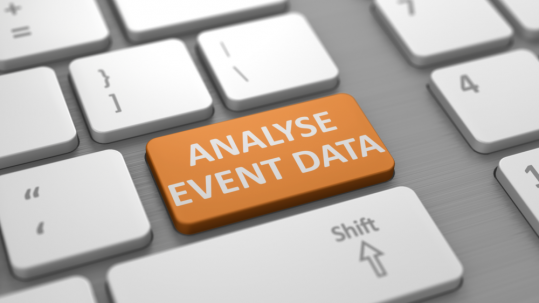Would you like to learn more about Event Technology?
Contact us now for more information.
We’re often asked for our opinions about what the “next big thing” is going to be, the piece of technology that is going to burst onto the event scene in the coming months.
A lot has been said about Virtual Reality, Augmented Reality, Bluetooth beacons and so on, but people should remember that it’s not the technology itself that makes a difference, it is how it is used that defines whether something is worthwhile or not.
Whilst this is less glamorous than looking at cool new gadgets, it is the sensible way of approaching any new gizmo announced with lots of words like ‘revolutionary’ and ‘disruptive’.
Technology is something that should help solve a problem, make something better, easier, or more entertaining even.
However, what we are seeing are more and more clients looking to technology to improve and build relationships with their delegates.
So rather than talk about the technologies themselves, we’re going to talk about the things that we believe technology should be addressing to help with this.

The correct use of technology can generate a lot of information about how participants interact with each other, with the organisers and with the event itself. Information helps place actions into context, allowing individual stories to appear that can lead to remarkable insights into audience behaviour.
Through these, the event can be improved and tailored to the audience it is aimed at. It also provides the opportunity to create personalised experiences for the participants that will enhance their enjoyment and appreciation, leading to improved outcomes and ongoing success for the event.
For this to occur the solutions used at events need to be inclusive (available to everyone), simple and intuitive to use, and the perceived benefits to the delegate must be clear. In other words, if only a proportion of the audience has it, if it’s complex to use and if people can’t see any advantage in using it, then the information generated will be at best limited and untrustworthy.

In an ideal world, information from one system should be able to flow seamlessly to another and back again, avoiding duplicate databases and complicated update procedures. In the real world, this is still a work in progress but some are making concerted efforts to create technological solutions to allow integration across different platforms. It’s not an easy nut to crack especially when most solutions are created in splendid isolation for specific requirements.

Once we have a lot of valuable information created by several different systems (registration, attendance, interaction, lead retrieval, etc.), “someone” needs to reveal the insights, draw the conclusions – make sense of it all to be blunt. Event organisers are often not in the best position to do this as they might move straight on to preparing their next event as soon as the previous one finishes. Data Science companies can help here, but simple solutions need to be available within the existing platforms that can show at least some of the information highlights. If you can’t measure it, you can’t improve it.